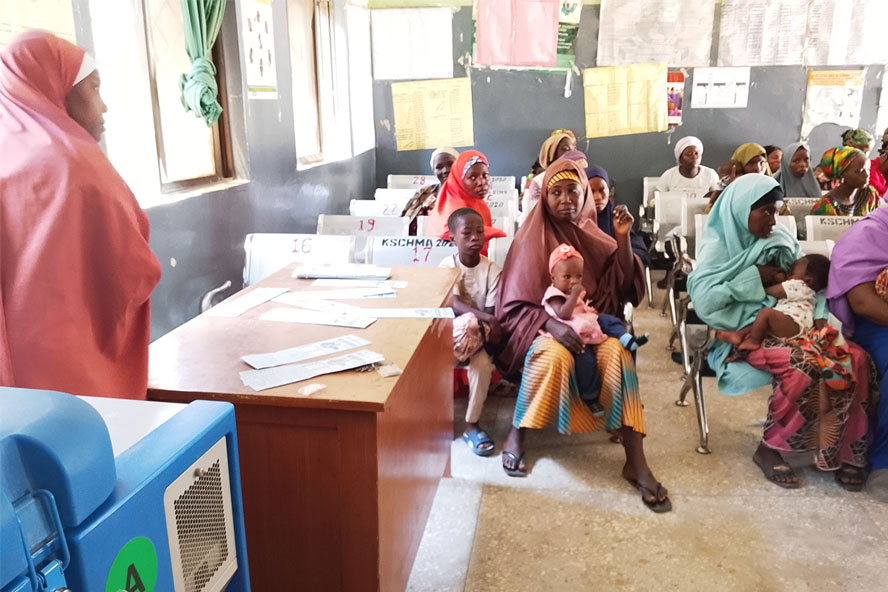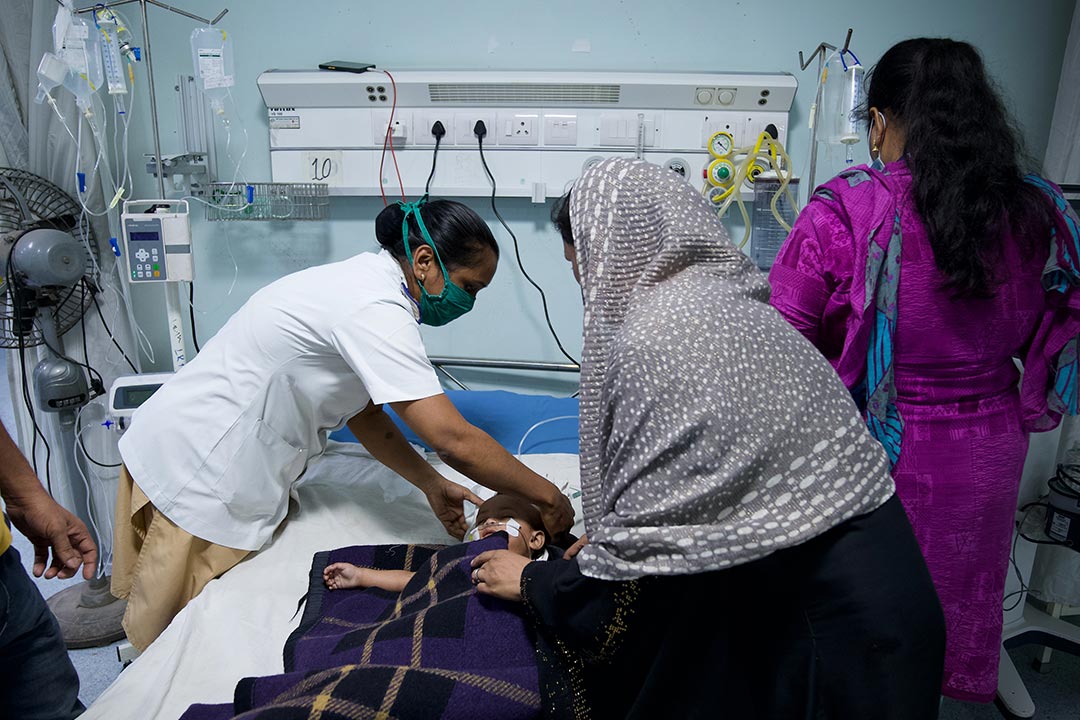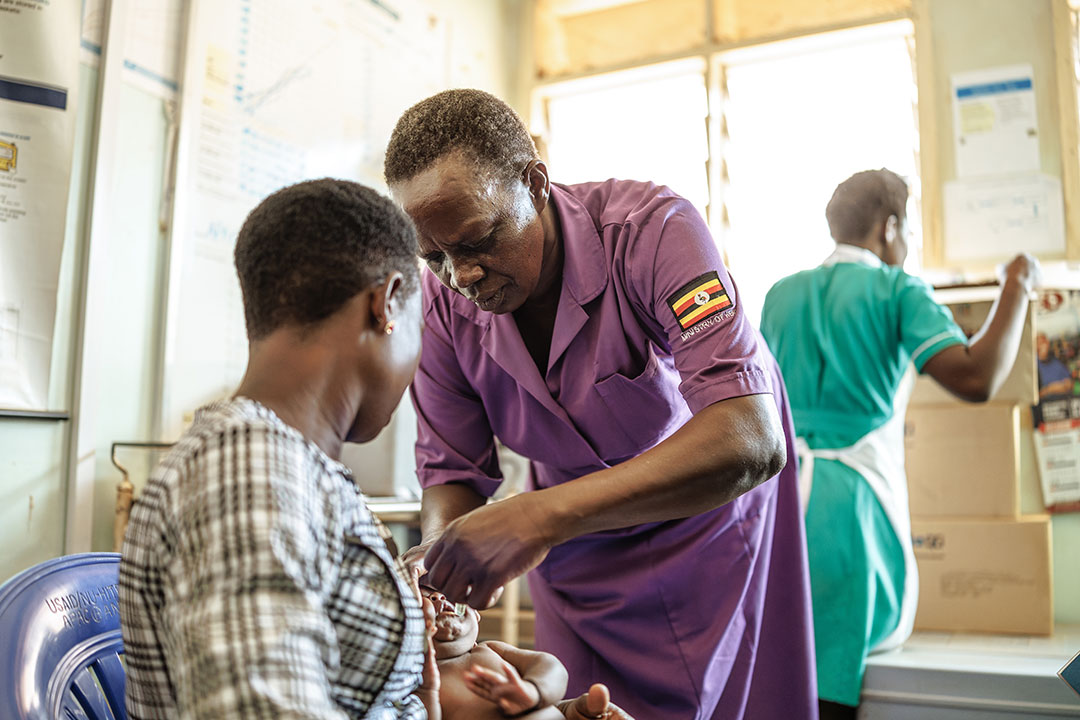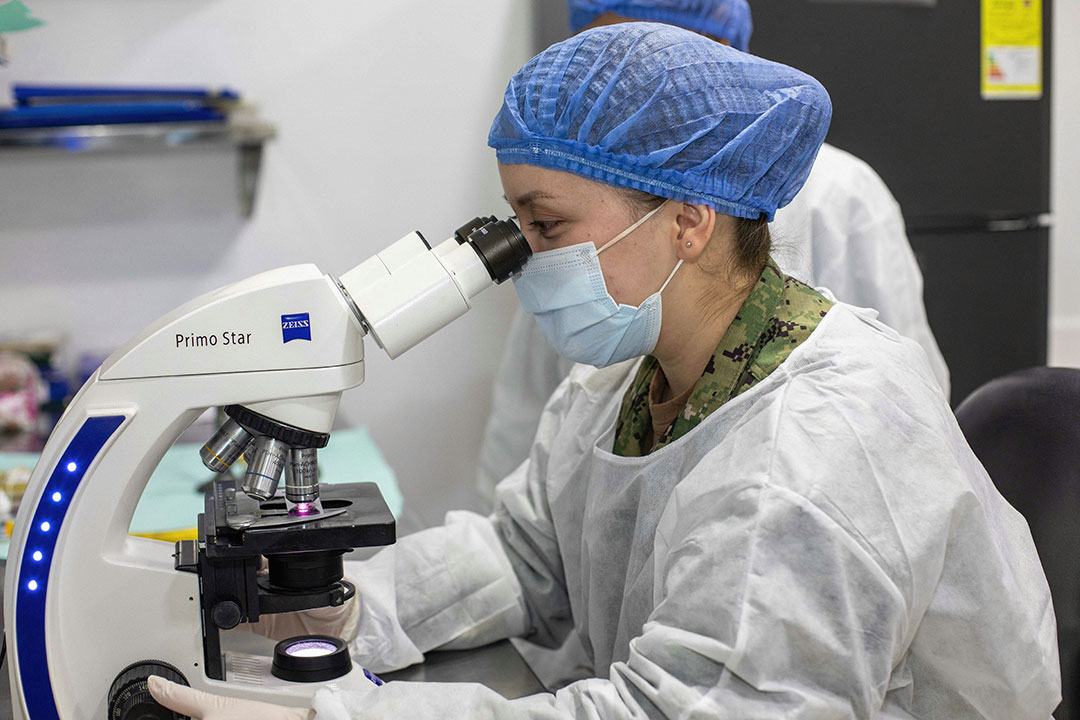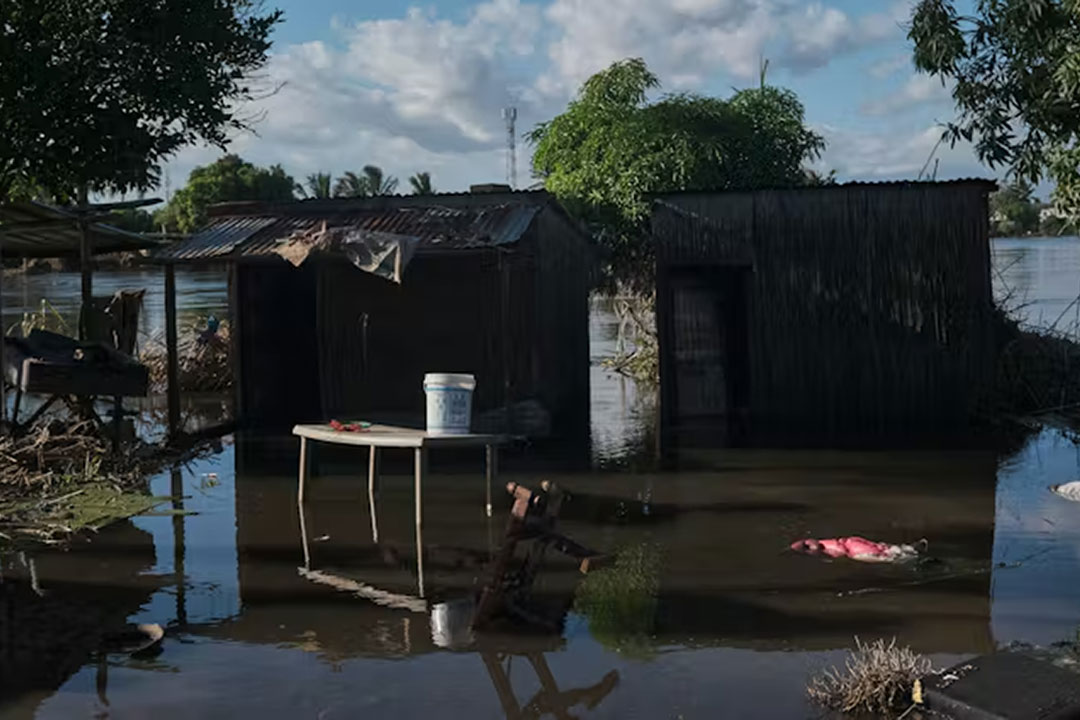The view from the frontline: how Nigeria is handling resurgent Lassa fever
For the physicians, nurses, janitors and epidemiologists on the frontline, fighting Nigeria’s latest wave of Lassa fever is all-out and exhausting. But their efforts appear to be paying off.
- 12 April 2023
- 6 min read
- by Afeez Bolaji
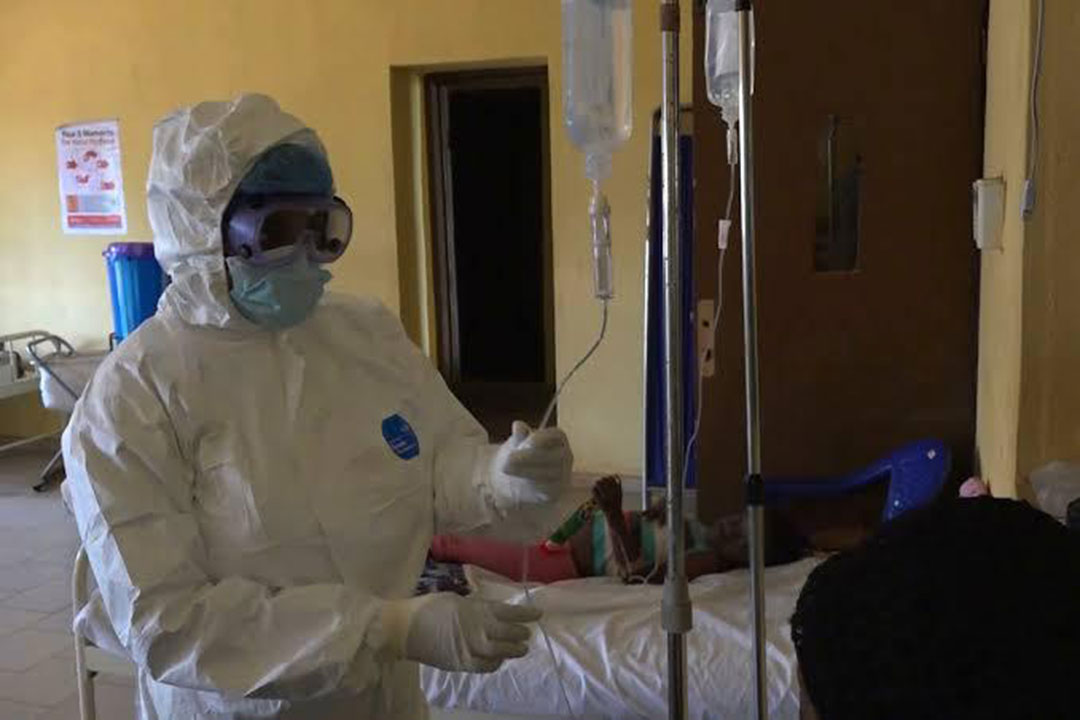
Dr Fyne Akubueze, a physician at the Federal Medical Centre in Owo, Ondo State, South West Nigeria, is on the frontlines of the country's fight with Lassa fever. At the epicentre of an ongoing surge in cases of the acute, viral haemorrhagic illness, she and her colleagues are spending long hours on the ward, attending to infected patients in the hospital's isolation centre.
"My major fear is treating infected children," she says. "Many children and babies less than four months old came down with the infection.
"It is not easy to find their lines or give them medications and they are scared of needle prick," she adds. "Also, there are fewer doctors and nurses on the ground due to the effect of brain-drain. So, my colleagues and I have to work extra hours," she says.
"My major fear is treating infected children. Many children and babies less than four months old came down with the infection."
– Dr Fyne Akubueze, Federal Medical Centre in Owo, Ondo State
However, she and her colleagues have soldiered on and successfully managed several cases, she confirms. "The outbreak [this year] is not as much as last year's because people are more aware of Lassa fever and they [infected persons] present earlier. We recorded lesser complications and deaths in this recent outbreak."
Her observations are echoed in the nationwide data. In its situation report on Lassa fever released on 6 April, the Nigeria Centre for Disease Control (NCDC) discloses that 4,108 suspected cases were recorded across 24 states in Nigeria between Week 1 of 2023 and Week 12, out of which 823 were confirmed cases. According to the centre, 72% of all confirmed cases were reported from three hard-hit states: Ondo (32%), Edo (29%) and Bauchi (11%), and 144 deaths were reported, making for "a case fatality rate (CFR) of 17.5%, which is lower than the CFR for the same period in 2022 (18.6%)".
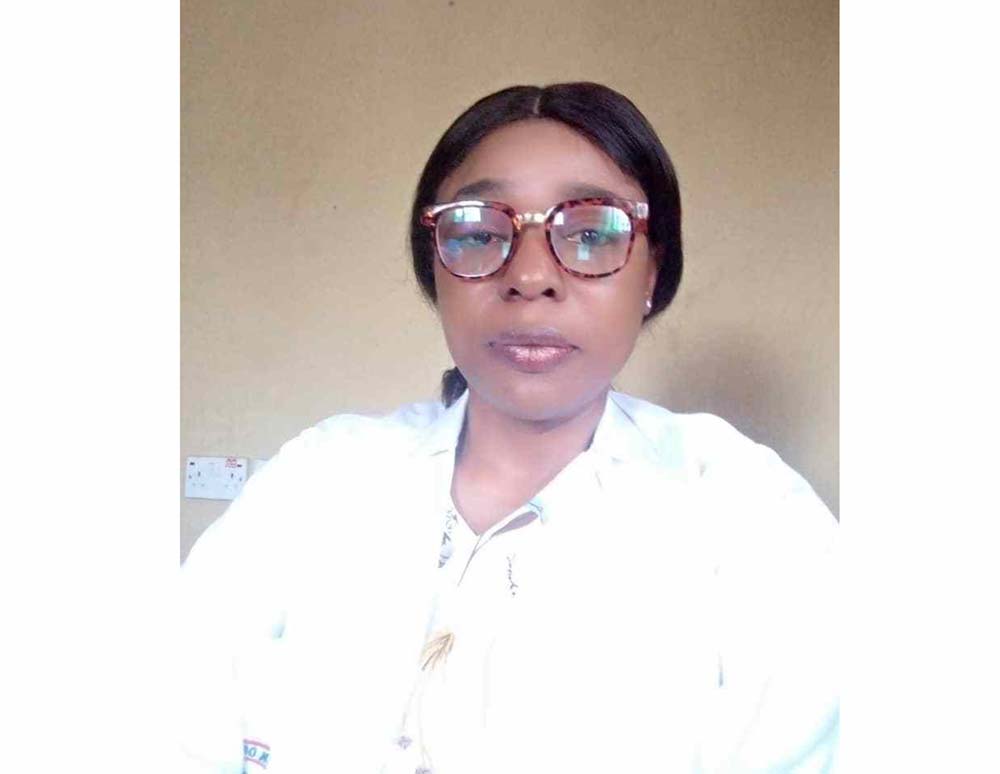
Credit: Afeez Bolaji
But frontliners like Akubueze are battling fatigue. Wearing protective overalls for long periods in the "red zone", where infected patients are treated, takes both a physical and psychological toll, she explains.
"Ideally, we are not supposed to spend more than an hour in the overalls, but when you go in [to the ward] and see how patients are faring, you end up spending more hours to attend to them. I have spent five hours in that overall and came out drenched in sweat.
"We are working around the clock to take care of the patients. The psychological stress is both for the patients in isolation and health workers who do extra shifts. Even the hospital cleaners, despite using their PPE, live with the fear that they may be infected."
– Dr Benson Okwara, University of Benin Teaching Hospital, Edo State
"It [the overall] comes with some discomfort, but the consolation is when you resuscitate a baby that is dying and he feels better. Even if it takes you five hours to leave the ward, you're coming out happy," the doctor says.
"It can be emotional seeing a patient who you could have helped if the person had come earlier, but as long as you are doing everything possible to save the patient, it somehow takes the emotion off you," Akubueze further explains.
In addition to milder symptoms of fever, sore throat, and abdominal pain, Lassa, like Ebola, can cause anaemia, low blood pressure and catastrophic haemorrhaging. "I had a patient that was very anaemic. Luckily for us she survived," Akubueze says, adding that people pay less attention to Lassa fever compared to other infectious diseases like Ebola.
"Though more people are becoming aware [of Lassa fever], we need to increase health education in this regard," she advises.

Credit: Afeez Bolaji
Dr Benson Okwara, a consultant physician and head of infectious diseases management at the University of Benin Teaching Hospital (UBTH) in Edo State, Nigeria's South-South, says some Lassa fever patients also experience diarrhoea, vomiting and nausea.
He admits that treating the patients is very demanding as only a few dedicated health workers are involved in providing the care.
Have you read?
"We are working around the clock to take care of the patients. The psychological stress is both for the patients in isolation and health workers who do extra shifts. Even the hospital cleaners, despite using their PPE, live with the fear that they may be infected. So, we invite psychotherapists and psychologists to encourage the patients and healthcare workers," he says.
NCDC, states join forces to manage Lassa fever resurgence
To stem the infection rate, governments at the sub-national level collaborate with the NCDC, which coordinates the national emergency response. The NCDC activates a national Lassa fever Emergency Operations Centre (EOC) which undertakes intensive response activities in affected local government areas, designs the tools for data collection for all confirmed cases, and conducts enhanced surveillance in affected states.
More measures go into trying to squash the outbreak: periodic vector control activities take place in Edo and Ondo states, for instance, and national rapid response teams are dispatched to affected hotspots.
But a lot relies on targeted communication. Ondo State Commissioner for Health, Dr Banji Ajaka, says the state is containing Lassa fever resurgence by engaging the people and educating communities about the infection and how to prevent it.
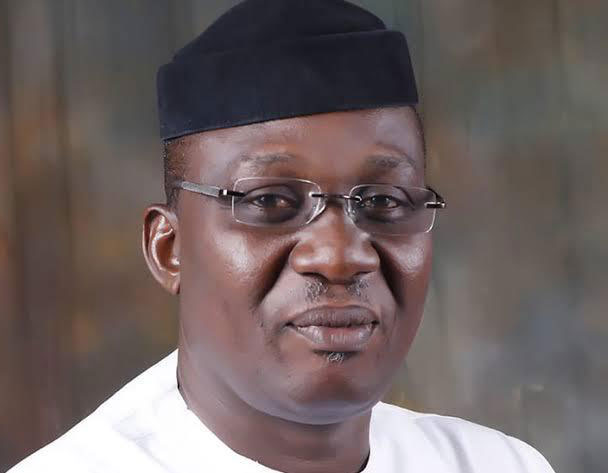
Credit: The Source Magazine
"There is also a lot of media campaigning through radio jingles and on social media. Local government authorities, community leaders and traditional rulers are actively involved in the ongoing campaign. We also educate hospitals not to harbour suspected cases of Lassa fever, but rather to refer the patients to the designated centres," the commissioner says.
"We are also doing contact tracing of any infected persons. We have increased our capacity to test and treat patients with the support of the NCDC and other partners," he adds.
Ajaka explains that the government discourages people from bush burning, which enables multimammate rats, the Lassa virus vector otherwise known as common African rats, to escape into households and contaminate exposed food with their urine or faeces.
"We have town announcers in various local government areas to ensure that everybody is aware of Lassa fever and warn them not to self-medicate if they show symptoms. …fortunately the cases have declined compared to the first two months of the year."
– Dr Uwa Okhuarobo, Edo State Ministry of Health
"Also, we recently banned traders from spreading staples along the roadside because these rats can easily find their way there," the commissioner adds.
An epidemiologist at the Edo State Ministry of Health, Dr Uwa Okhuarobo, says the state government has intensified efforts in cleaning the environment and collaborating with the local councils on a "deratization programme" – the mass distribution of raticide to communities.

Credit: Afeez Bolaji
"These measures are being taken to reduce infections to the barest minimum. We have town announcers in various local government areas to ensure that everybody is aware of Lassa fever and warn them not to self-medicate if they show symptoms. Rather, they are encouraged to visit health care centres where they can easily be tested. These are the things we have been doing so far and fortunately the cases have declined compared to the first two months of the year," he says.

